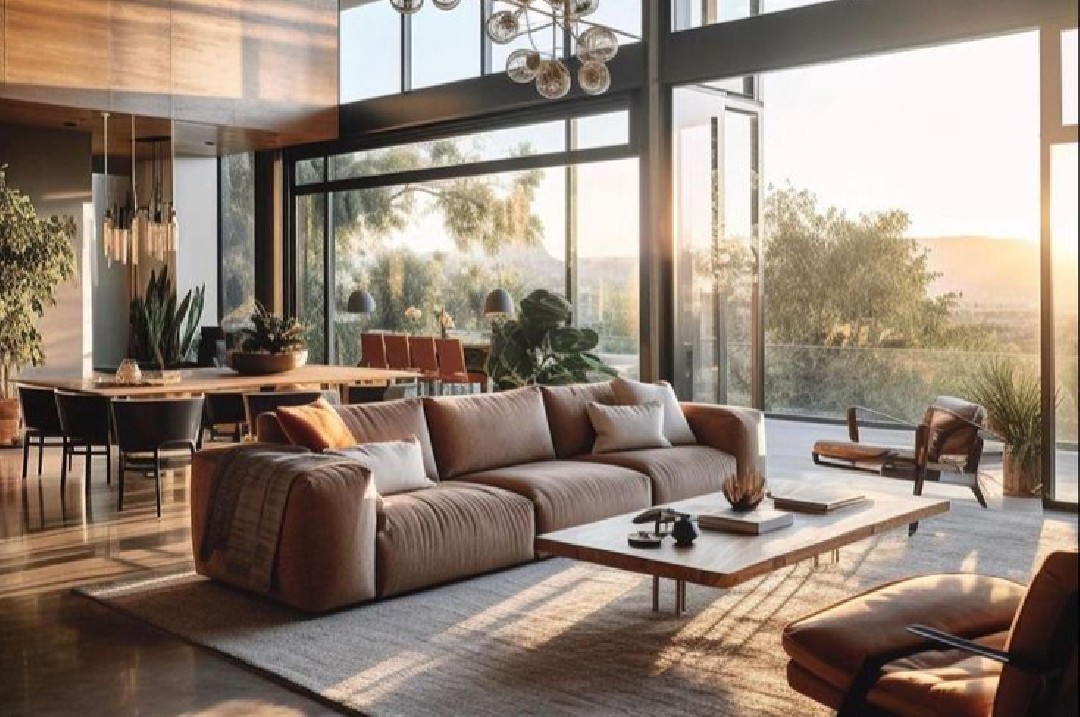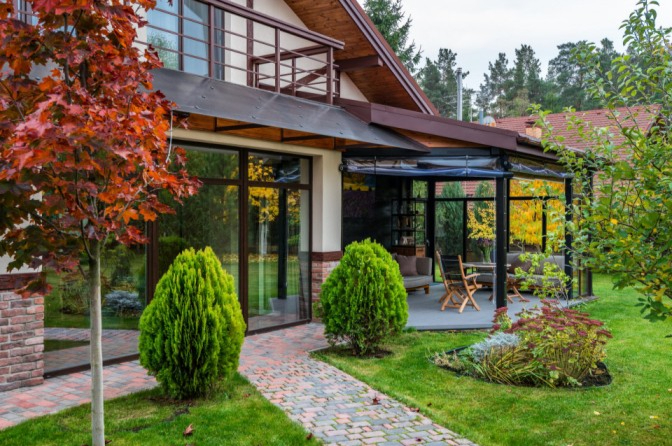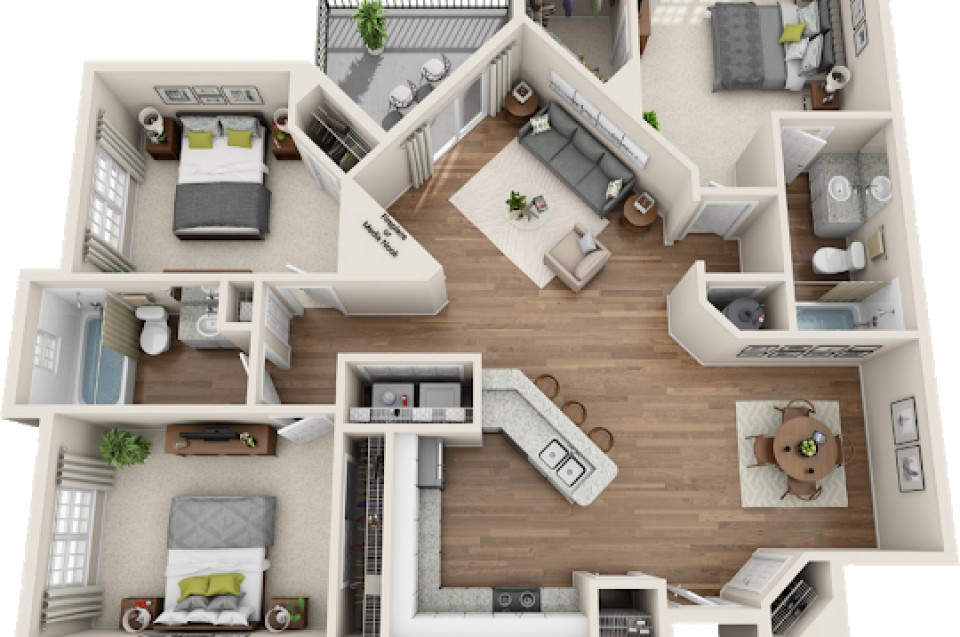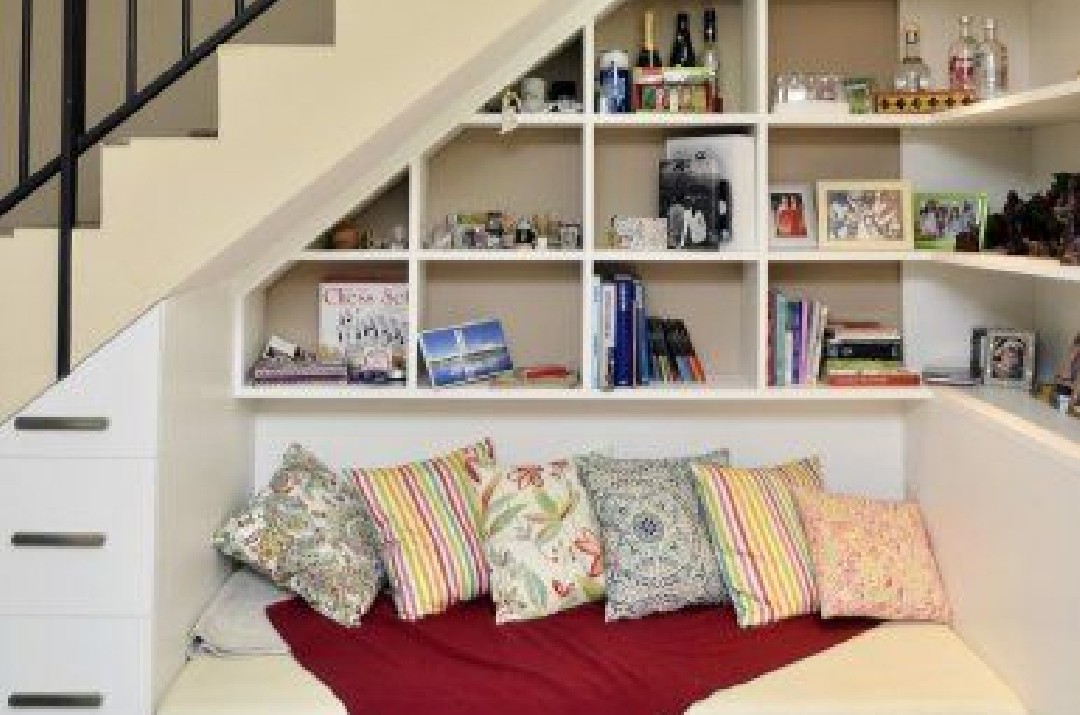Harnessing Natural Light: Tips to Brighten Your Home Without Excessive Lighting

Natural light is an essential element in creating a comfortable and healthy home environment. Additionally, natural light can also help save energy by reducing the use of artificial lights.
Here are some tips for utilizing natural light in your home:
1. Maximize Windows: Gateways to Natural Light

Windows are the primary gateways for natural light to enter your home. Therefore, it's crucial to consider several factors related to windows:
-
Window Positioning: Consider the direction of sunlight. Position windows in areas that receive direct sunlight, such as the eastern and southern sides of your home. This will maximize the natural light entering during the morning and afternoon hours.
-
Window Size: Utilize large windows. The larger the window, the more natural light can enter. Consider the type of window that suits your needs, such as sliding windows, folding windows, or skylights.
-
Window Glass Type: Choose the appropriate window glass type. Clear glass allows natural light to enter maximally. Stained glass or colored glass can provide aesthetic effects but reduce the intensity of incoming light.
-
Window Cleanliness: Maintain clean windows regularly. Dirty windows can obstruct natural light and make the room feel darker. Clean windows periodically with soapy water and a cloth.
2. Light Colors: Reflecting Light and Expanding Spaces

Using light colors on interior elements of your home can help reflect natural light and make rooms feel larger and brighter:
-
Wall and Ceiling Paint: Use light-colored paint like white, cream, or pastel shades on walls and ceilings. Avoid dark colors that can absorb natural light.
-
Furniture: Choose light-colored furniture to create a more spacious and bright room appearance. Avoid dark-colored furniture that can make a room feel cramped and gloomy.
-
Decorations: Utilize light-colored decorations to enhance the room and brighten the atmosphere. Avoid dark-colored decorations that can make a room feel darker and somber.
3. Mirrors and Reflective Surfaces: Bouncing Light into Room Corners

Mirrors and reflective surfaces can help bounce natural light into corners of rooms that don't receive direct sunlight:
-
Place Mirrors Opposite Windows: Mirrors can help reflect natural light into corners of rooms that don't receive direct sunlight. This can make the room feel brighter and more open.
-
Use Furniture with Reflective Surfaces: Furniture with glass or metal surfaces can reflect natural light and make a room feel brighter. Choose furniture with an attractive design that complements your home décor style.
-
Utilize Sheer Curtains: Select sheer curtains that allow natural light to enter the room. Avoid using heavy or dark-colored curtains that can block natural light.
4. Houseplants: Natural Filters and Fresh Ambiance

Houseplants not only beautify homes but can also help filter natural light and create a fresher atmosphere:
-
Place Houseplants Near Windows: Houseplants can help filter natural light and reduce glare. Choose houseplants that can tolerate direct sunlight and suit room conditions.
-
Select Sunlight-Tolerant Houseplants: There are many types of houseplants that thrive in areas with direct sunlight. Examples include cacti, succulents, hibiscus, and jasmine.
-
Care for Houseplants Properly: Healthy houseplants will help maximize the benefits of natural light. Water houseplants regularly, fertilize them adequately, and clean their leaves from dust.
5. Furniture Placement: Making Room for Natural Light

Proper furniture arrangement can help maximize the entry of natural light into a room:
-
Avoid Placing Large Furniture in Front of Windows: Large furniture like sofas, cabinets, and beds can obstruct natural light entering the room. Arrange furniture to avoid blocking windows.
-
Arrange Furniture to Avoid Blocking Light Flow: Ensure sufficient space between furniture and windows to allow natural light to pass through easily. Avoid cluttering furniture.
6. Home Maintenance: Keeping Windows and Roofs for Optimal Natural Light

Proper home maintenance can help keep windows and roofs in condition for optimal natural light:
-
Clean Windows Regularly: Dirty windows can obstruct natural light entering the room. Clean windows periodically with soapy water and a cloth.
-
Trim Tree Branches Obstructing Light: Overgrown tree branches can block natural light entering your home. Trim tree branches regularly to allow natural light to pass through easily.
-
Inspect Roof and Gutters: Leaky roofs and gutters can cause rainwater to enter your home and damage windows. Inspect the roof and gutters regularly and make repairs if necessary.
7. Benefits of Natural Light: Beyond Illumination

Harnessing natural light in your home goes beyond saving energy and brightening rooms; it offers numerous other benefits:
-
Enhances Physical Health: Natural light helps the body produce vitamin D, essential for bone and teeth health. Natural light can also help improve mood and sleep quality.
-
Promotes Mental Well-being: Natural light can help reduce stress and anxiety. Natural light can also help improve focus and concentration.
-
Creates a Comfortable Atmosphere: Natural light can help create a comfortable and relaxing atmosphere in your home. Natural light can make you feel happier and more peaceful.
Conclusion
By implementing the tips above, you can maximize natural light utilization to brighten your home without relying excessively on artificial lighting. Additionally, harnessing natural light can help enhance your health and well-being. So, start opening your windows and enjoy the benefits of natural light in your home!
Additional Tips:
-
Use energy-efficient lightbulbs: If you still need lighting, use energy-efficient bulbs like LEDs. LEDs are more energy-efficient and long-lasting than incandescent bulbs.
-
Turn off lights when not in use: Switch off lights when not in use to save energy.
-
Utilize light sensors: Light sensors can help automatically turn off lights when a room is bright.
-
Create a garden around your home: A garden can help diffuse overly intense sunlight and create a cooler atmosphere inside your home.
By implementing the tips above, you can create a brighter, more energy-efficient, and healthier home.








